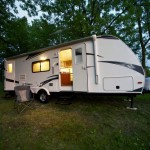We would all like to think that we are safe drivers, able to quickly make the right decisions, react to hazards and dangers instinctively, and avoid impaired thinking due to drowsiness. But “sleep is a powerful biological drive—one that can overtake even the best driver,” according to the National Sleep Foundation. ” Rolling down the windows and turning up the radio volume—these tricks don’t work.”
And, unfortunately, it is not always obvious that you’re too tired to drive. Warning signs include trouble focusing, frequent blinking and heavy eyelids. Are the last few miles a blur? Have you missed traffic signs and exits? If your mind wanders and your find yourself yawning, it’s time to call it a day.
Take the necessary steps to avoid drowsiness before you start your drive as well as while on the road. Here are some tips:
• Get 7-8 hours of sleep before your drive. If you didn’t get enough sleep the night before, take a short nap before starting to drive. If you feel drowsy mid-trip, find a safe place to park and take a 20-minute nap. Allow 15 minutes to clear post-nap grogginess before re-starting.
• Switch drivers if possible every two hours to take a walk and get some fresh air. Do some stretches and foot circles.
• Deep breathing raises blood oxygen levels, which slows your heart rate, lowers blood pressure, and improves circulation, ultimately aiding mental performance and energy.
• Don’t drink alcohol, as even the smallest amount can cause drowsiness.
• Do drink caffeine, which improves alertness. Repeat when effect wears off, usually after a few hours.
• If you begin to feel drowsy, start a conversation or play mind games to keep your brain alert.
• Avoid driving between midnight and 6 a.m., as this is when your body’s biological rhythms kick in and and sleepiness is most intense.
• Don’t rush to meet a schedule. Safety is more important than arriving on time.
• Stay hydrated by drinking liquids while you drive.
• Studies have shown that daily exercise was more effective in increasing energy and reducing daytime fatigue than some medications used to treat sleep problems. Regular exercise also improves quality of sleep.


